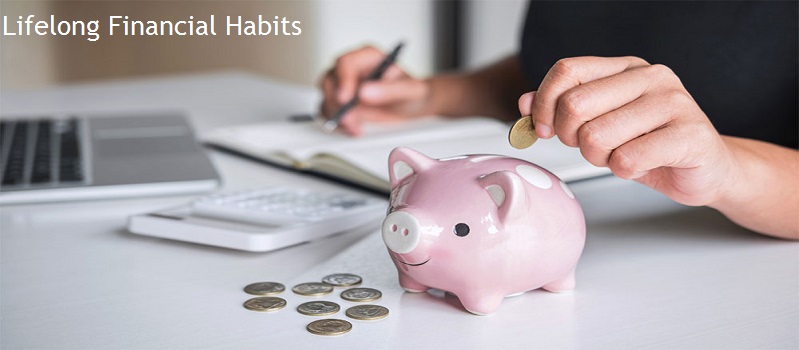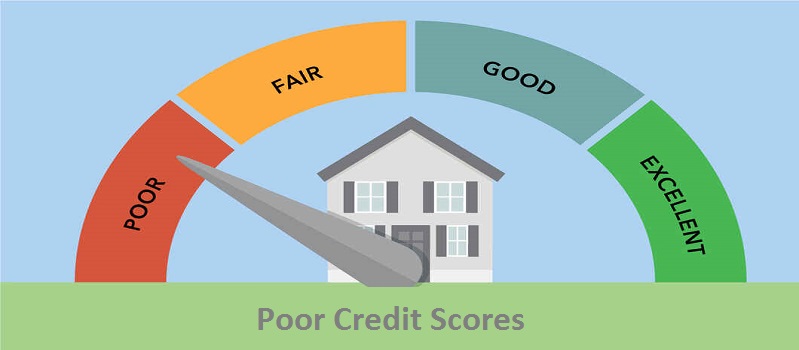There is no simple and straightway to financial success. Your money habits will decide how your financial life will be in the future. Good habits, of course, will lead to secure financial life, while bad habits will take a toll on your money.
Whether you want to get rid of habits or you want to build an investment portfolio, you can achieve your financial goals if you are making an effort to achieve them. You must follow the right route to reach the desired destination.
Likewise, you need to follow good financial habits to achieve your financial goals. Many experts suggest following good money habits, but a few of you successfully stick to your plan and bring it off.
A good financial situation is not determined by how much money you own or earn. It is rather determined by how you are able to set aside money for emergencies after meeting your regular expenses.
One person earning more than the other can be in debt. Regardless of the size of earnings, the concern is your spending. If you spend more than you earn, you will, of course, fall into debt.
Lifelong financial habits you must build
It has been seen that people try to mend their financial behaviour only for a temporary time period unless their current problem is resolved. For instance, if you have racked up credit card bills, you will completely stop using the credit card unless you settle all outstanding dues, and then you start using it. If you want to improve your financial situation and want it to be organised throughout life, you should establish the following lifelong financial habits:
Live within your means
The key to making your financial life better is to live below your means. It means you spend less than your earnings. You will have to tweak your budget to do it. For instance, you will have to avoid eating out.
If you are spending equal to your earnings, you should grab another income source. It is crucial to have savings for a rainy day. A part-time job or a passive income source can help earn money you can set by. Here is what you should do to live below your means:
1. Create a budget
It will help monitor your expenses. Even if you are earning a good amount of money, you can end up running out of money at the end of the month, and this is because of overspending. Budgeting will help you track your expenses. You will be able to take up the reins of your spending.
2. Pay yourself first
It means you should put in money as soon as you receive your paycheque. This money will see you through in your difficult times. Set a particular amount of money that you can lay aside every month, and then try to meet all of your regular expenses from what you are left with.
Having an emergency cushion is essential so you do not rush to online lenders to borrow money as they will cost you too much money. Debt reduces the buying power.
3. Save for planned goals
Emergency cushion will help save your skin when unforeseen expenses pop up. However, you will need to set aside money dedicated to long-term goals. It is a better move if you have a separate cushion for each goal, for instance, wedding, car, house, etc. You will know how much you have explicitly saved for each goal.
For instance, after arranging the down payment, you can take out a soft credit search for car finance.
4. Shop with cash
Most people are not comfortable using cash as it does not provide as much convenience as a credit card. Although they provide convenience, they come with drawbacks too. You can end up overspending as you do not have an idea of it at the time of purchase.
When a bill is generated, you eventually realise that you do not have enough cash to pay off the balance. If you do not want to fall into credit card debt, you should try to use cash. Make it a habit that you use cash to make all kinds of purchases.
Think that you do not have a credit card. As far as it is about building credit, they cannot contribute to it because you usually pay off the balance in a lump sum.
5. Stay away from debt
There are certain expenses when you may need to borrow money. For instance, when you are to buy a car or a house, you take out a loan. However, if you tend to take out a loan to cover your short-term funding, you will likely fall into debt.
You should try to make a habit of staying away from debt for unexpected expenses. Use an emergency cushion to meet those needs. If you can put it off, you should. If it is urgent and your savings are not enough, ensure that the borrowing amount is subject to your affordability.
Therefore, do proper research and choose a reputed direct lender like QuickLoansLender to seek the affordable loans.
The bottom line
You will have to establish good financial habits if you want to achieve financial success. However, these habits will not be enough if you do not make them last forever. Temporary adoption of these habits will not let you get financial success in the long run.
You should try to stick to these habits throughout your life. Whether you want to build your credit rating or you want to earn more amount of income, you will have to stick to the habits mentioned above.
The ground rule of thumb says you should create a budget, track your spending, cut down on discretionary expenses to live below your means, set aside money for unforeseen expenses, contribute to long-term saving plans, stay away from debt as much as you can, and avoid using a credit card for shopping.

Emma Anderson is a financial advisor at Quickloanslender who always believes in researching hard to know her clients’ financial problems. She takes the time to understand their financial wants and needs to write the blogs on them as the solutions. In her long 14 years of experience, she has written plenty of blogs on the financial and business sectors of the UK.
Emma Anderson has been recognised for her work in financial planning and her blogs are regularly published in the website of Quickloanslender. As far as her educational qualification is concerned, she has done Masters in Accounting and Finance, and done PG Diploma in Creative Writing.






